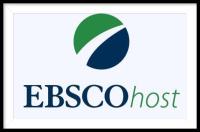
Writing a research paper can induce panic in even the most lion-hearted student. You need a topic and tentative idea of how you want to develop it. Then you need primary and secondary sources to support and build upon your topic. I discussed options for primary sources in a previous review. This review will discuss options for secondary sources. You cannot just use any website. Wikipedia—the much-loved free online encyclopedia— is forbidden by educators from appearing in your Works Cited page due to its unreliable creditability. Educators usually require secondary sources be peer reviewed (a process by which something proposed [as for research or publication] is evaluated by a group of experts in the appropriate field) (Merriam-Webster). The Johnson County Library offers FREE access to many databases to research a variety of topics and disciplines. You can print, email, and/or save online full-text and peer-reviewed articles to Google Drive or Microsoft OneDrive. Each article or report usually contains convenient source citations for works cited pages in your choice of style, including MLA 9th Edition (Modern Language Association), APA 7th Edition (American Psychological Association), Chicago 17th Edition, and Harvard. All you need is your library card number and PIN/Password.
What is a secondary source? According to the Harvard Library, “Secondary sources were created by someone who did not experience first-hand or participate in the events or conditions you’re researching. For a historical research project, secondary sources are generally scholarly books and articles. A secondary source interprets and analyzes primary sources. These sources are one or more steps removed from the event. Secondary sources may contain pictures, quotes or graphics of primary sources. Some types of secondary sources include Textbooks; journal articles; histories; criticism; commentaries; and encyclopedias.” https://guides.library.harvard.edu/HistSciInfo/secondary
Francine Prose’s nonfiction book, Anne Frank: the Book, the Life, the Afterlife, for example is a secondary source that examines the literary merit of Anne Frank’s The Diary of a Young Girl— a primary source about Anne’s first-hand experiences hiding with her family to avoid Nazi persecution during the Holocaust.
Since the Johnson County Library has a wealth of databases, I’m only going to highlight four that I have used for school: EBSCOhost Research Databases, Biography (Gale in Context), Gale Literature, and Culture Grams. They can be found two different ways: under Research, then Databases A-Z, then select the first letter in the first word of the database or under Teens or Kids then Homework Help. I recommend exploring the other amazing databases on the library website for your specific research needs.
EBSCOhost Research Databases is a secondary source that allows patrons to search across one or more databases concurrently through EBSCOhost for the widest search available. There are 53 databases, including Academic Search Primer, Psychology and Behavioral Sciences Collection, Religion and Philosophy Collection, Military & Government Collection, Applied Science & Technology (H.W. Wilson), History Reference Source, and Art Full Text (H.W. Wilson). Conduct a basic or advanced search and use filters to only show you results with peer reviewed and online full-text articles. You also have the option to only search in a specific database by selecting the one you want in Databases A-Z. This source is essential for college students needing scholarly articles for research papers.
Biography (Gale in Context) is a secondary source that provides access to biographies of individuals in a wide range of subjects including business, politics, government, history, science, sports, the arts and entertainment. Content includes magazine articles, video footage, radio broadcasts, photographs and more to provide contextual information on the world’s most influential people. This database is an essential source for middle school, high school, and college students doing a report about an influential person.
Gale Literature is a secondary source that provides access to a wide collection featuring literary biographies, criticism, primary source material, reviews and overviews. This collection also includes some short stories, plays, speeches and poems. You can research authors and their works, literary movements and genres from all time periods and from around the world. Use this database to search across award-winning series that comprise Literature Criticism Online and cover centuries of critiques on authors and their works that span all time periods, types of literature and regions, including Children’s Literature Review, Classical and Medieval Literature Criticism, Contemporary Literary Criticism, Dictionary of Literary Biography, Drama Criticism, Literature Criticism from 1400 to 1800, Nineteenth-Century Literature Criticism, Poetry Criticism, Shakespearean Criticism, Short Story Criticism, Something About the Author, and Twentieth-Century Literary Criticism. Use filters to only show you results with online full-text and peer-reviewed articles. This is an essential source for English majors or any student doing research projects for required literature courses.
Culture Grams is a secondary source that contains information on history, culture, and geography of each American state, Canadian provinces, countries and regions of the world. Each entry includes graphics, charts, videos, printable fact sheets, recipes, interviews, and more. The concise, up-to-date reports can be added to Goggle Classroom in edition to print, email, and save to Google Drive options. This resource is perfect for kids and teens with geography related research needs.
Now that you are armed with reliable research tools and information all you need is a topic. If you learn best by observing, visit any of our branches to get an in-person tutorial from one of our knowledgeable librarians. We will have you ready to meet any academic challenge in the new school year with bolstered confidence and research skills. These databases are not just for student use. If you enjoy the act of learning, they are for you too.
